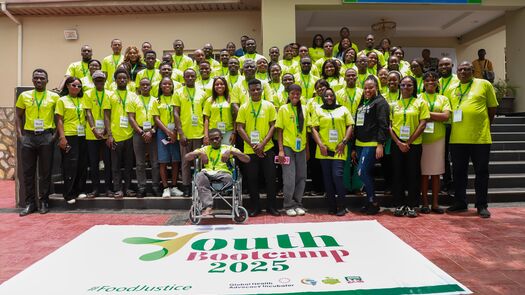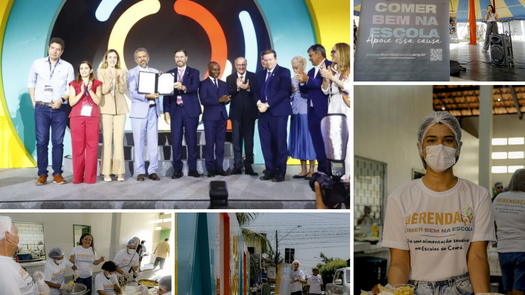November 25, 2025
Earlier this year, students, families and health advocates celebrated a major legislative victory in Niterói, Brazil, with the passage of Law No. 3766/2023, which prohibits the sale, marketing and distribution of products that contribute to childhood obesity in schools, including all ultra-processed products (UPPs). Six months later Brazil’s second most populated city, Rio de Janeiro, followed suit by passing municipal law No. 7987/2023, prohibiting the sale and offer of UPPs in all preschool and elementary public and private schools.
The Global Health Advocacy Incubator’s (GHAI) partner Desiderata Institute successfully advocated for this policy that benefits more than 1 million students from public and private schools. Frequent consumption of UPPs among youth is a growing issue in Brazil and a leading cause of rising childhood obesity rates. Currently, 30% of children supported by the public health system are overweight, which is even higher in Niterói (37%) and in Rio de Janeiro (32%). This has serious implications for increasing the likelihood of developing diet-related noncommunicable diseases (NCDs), such as diabetes, heart and respiratory disease and certain cancers in adulthood. GHAI’s Food Policy Program tackles this public health issue by supporting partners including Desiderata Institute to protect children from these unhealthy products in public sector facilities, especially schools.

Niteroi’s law provides a legally codified definition of UPPs for the first time in the country, including qualifying ingredients, additives, production processes and specific examples of products that should be prohibited. Products like soft drinks, candies, ultra-processed cakes and biscuits and seasonings with monosodium glutamate or sodium salts are included in the list. Rio de Janeiro’s Law No. 7987/2023 and Regulatory Decree No. 52842/2023 contain complementary UPP definitions based on the Brazilian Dietary Guidelines and list similar products. In both cases, the food industry strongly opposed the inclusion of the UPP term and even suggested alternative and ineffective policy measures. Rio’s legislation contains specific food and nutrition education and promotion provisions and penalties for noncompliance with the law.
In support of Rio’s bill, Desiderata engaged in many rounds of discussions with city councilors to counter industry opposition. GHAI supported the Desiderata Institute by providing training on grassroots mobilization, holding meetings to discuss how to align communication efforts with their advocacy strategy and offering feedback on their communication pieces and actions. The Rio bill received unanimous support from the city council and was enacted in July 2023.
Raphael Barreto, the Food Policy Program project manager at Desiderata Institute said: “Rio de Janeiro city is the second largest capital in the country and therefore occupies a prominent place in the national political scenario. Approving such a law has brought attention to the topic from the press, expanded the debate on UPP risks to more people, as well as inspired other municipalities and states to file or resubmit similar bills. This has always been our strategy, to create a movement that exposes the urgency of a national legislation to regulate school food environment based on the approval of local laws.”
After the Rio de Janeiro law and decree passed, a similar bill was introduced in the State of São Paulo. Advocates are optimistic that this signals a wave of new school food policies across the country. Brazilian advocates are currently pushing for similar local and state bills throughout the country that aim to create a healthier school environment where UPP sales and marketing are restricted.



